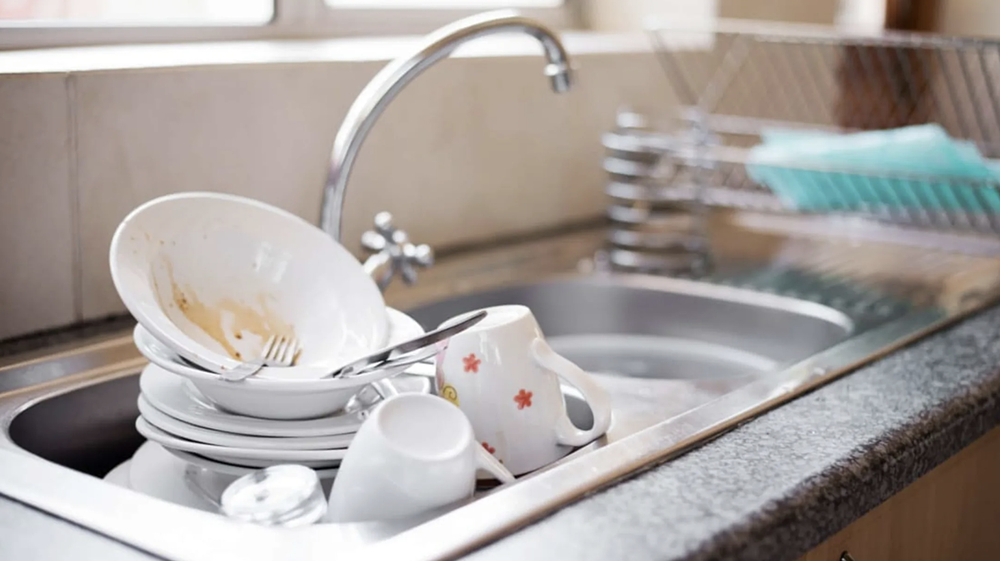Apart from food, the dishwashing sponge can also be a culprit for bacterial contamination in the sink. According to the doctor, there can be up to 10 million bacteria per square inch on a foam sponge and around 1 million if it’s a fabric sponge. Surprisingly, the dishwashing sponge can be 200,000 times dirtier than a toilet bowl. Using a dishwashing sponge in the sink can harbor disease-causing bacteria, most commonly Campylobacter jejuni, Salmonella, and Escherichia coli. Among them, E.coli is the cause of diarrhea, pneumonia, and accounts for 80% of urinary tract infections.
Is washing vegetables and soaking dishes in the sink safe?

Some households have a habit of soaking dishes in the sink, partly due to being busy and partly believing that soaking makes it easier to remove dirt. However, according to the Australian Broadcasting Corporation report, soaking dishes for a long time in the sink might make them dirtier.
Leaving dishes for an extended period creates an environment conducive to bacterial growth, especially if they are soaked in warm water or at high temperatures. Typically, bacteria in food double every 20 minutes. Their growth rate accelerates after two hours, reaching billions within 24 hours.
Similarly, soaking food in the sink directly exposes it to disease-causing bacteria, which can enter our bodies through consumption. The most hazardous foods are those consumed raw, like fruits and vegetables. There’s a high risk of food poisoning if you maintain this bad habit.
Suggestions for cleaning the sink:
To ensure safety for yourself and your family, you can apply the following hygiene methods to limit bacterial growth in your kitchen. Regularly replace and clean dishwashing sponges or brushes. Use hot water and soap to thoroughly clean the sink and dishes. Consider sanitizing the sink with diluted bleach or vinegar to kill bacteria.
- Hot water
Even though the sink has been scrubbed with soap or hot water, bacteria can still persist. This is because to effectively kill bacteria, a significant temperature is required not hot enough. According to experts, you can boil water yourself and pour it directly onto the dirtier areas of the sink. Then, wait for about 2 – 3 minutes for the dirt to detach from the surface. Afterward, use a brush or a dishwashing sponge to scrub with a bit of dish soap and rinse thoroughly with cold water.
2. Fresh lime and vinegar
Fresh lime and vinegar have long been effective cleaning agents and are easily accessible. The procedure is straightforward: mix lime juice and vinegar in a 1:1 ratio. Next, dip a dishwashing sponge or a cloth into the mixture and wipe all around the sink, then rinse thoroughly with water. For areas with more or heavier dirt, pour the mixture directly onto the surface and wait about 20 – 30 minutes before rinsing with water for better effectiveness.
3. Specialized cleaning agents
For quick and effective sink cleaning, using specialized dishwashing liquid or kitchen sanitation cleaning solutions is one of the methods you cannot overlook.













